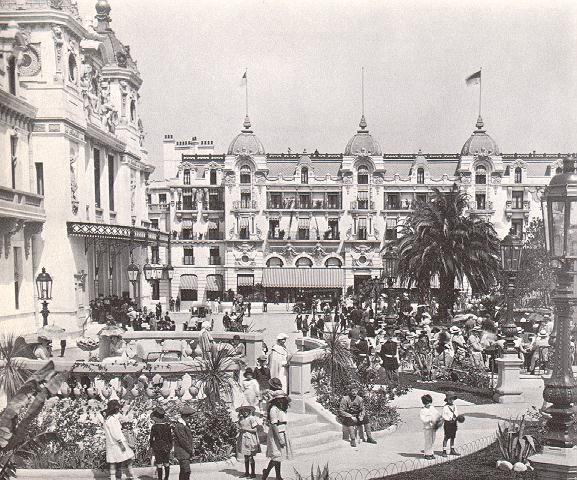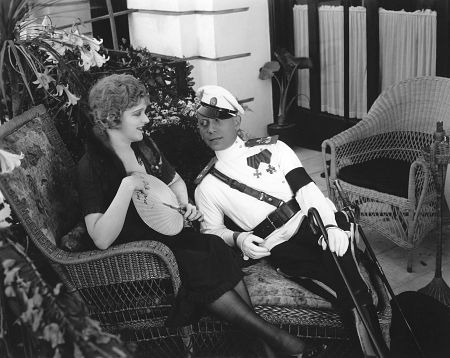
When Erich Von Stroheim was supervising the construction of the Monte Carlo sets (pictured above) for Foolish Wives on the Universal lot in 1921, he insisted that a series of real and very large plate-glass windows be installed in the Cafe de Paris facade so that he could film in them the reflection of the facade of the building opposite.
The windows cost $12,000 — an enormous sum at the time. But as Von Stroheim biographer Richard Koszarski points out, the effect of the reflections remains startling, if subtle — it creates the illusion of a whole real world, including buildings behind the audience. It is an effect beyond the means of any theater, and purely cinematic.
It is also emblematic of Von Stroheim's vision of cinema — radical for its time. Koszarski supplies us with a quote from Jean Renoir which sums up this vision eloquently. Renoir said he saw Foolish Wives at least ten times, and that it was this film which inspired him to dedicate his life to filmmaking. Renoir said that the film impressed him with “the possibility of creating within a film a world that might differ greatly from reality but still would be experienced as having a wholeness and coherence like that of the world we live in.”
All great directors from Griffith onwards have at least intuited this fundamental and unique potential of the film medium, but Von Stroheim was the first to use it consciously as the basic organizing principle of his style.
It's almost impossible to overestimate the importance of Von Stroheim's creative insight to the art and subsequent history of film. Without it, just for starters, Jean Renoir might have decided to go into some other line of work.

